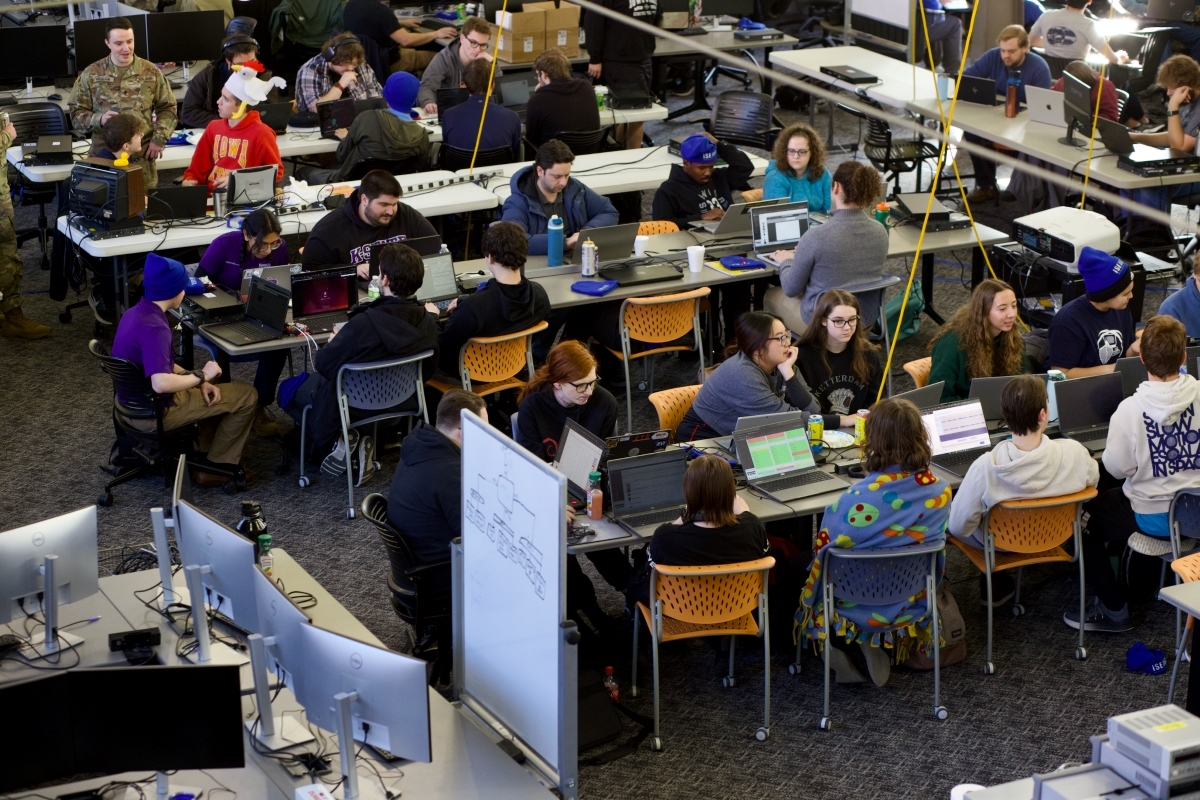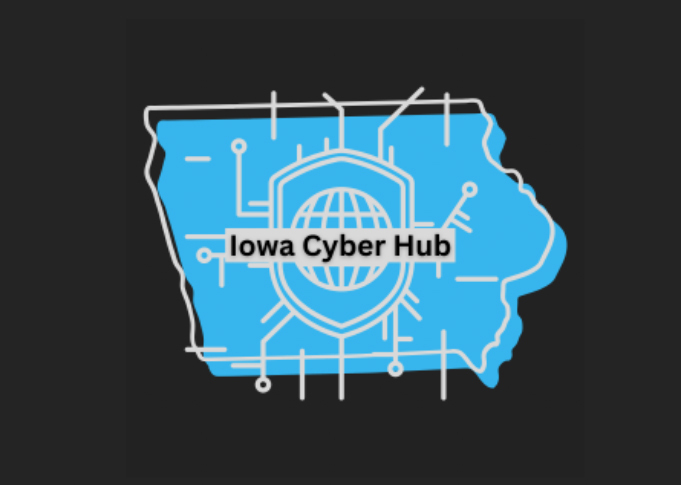
Students compete during a cyber defense competition on the Iowa State campus. Larger photo. Photo courtesy of Iowa State's Center for Cybersecurity Innovation and Outreach.
AMES, Iowa – Iowa high school students will be hacking their way through computer challenges, looking for vulnerabilities and capturing virtual flags.
Capture the Flag activities are a common, hands-on way to teach and learn cybersecurity, especially the skills of searching for system weaknesses.
Winning a few flags will be a highlight of the Iowa Cyber Hub’s first Youth Cyber Summit from 10 a.m. to 2 p.m. on Saturday, Oct. 12, in Coover Hall on the Iowa State University campus.
“This is a continuation of our Cybersecurity Ambassador Program,” said Doug Jacobson, a University Professor of electrical and computer engineering at Iowa State, the director of the university’s Center for Cybersecurity Innovation and Outreach and executive director of the Iowa Cyber Hub. “We’re trying to get students interested in cybersecurity – and those who are already interested – all together to learn and interact.”
Iowa State and Des Moines Area Community College established the Iowa Cyber Hub in 2017 as a resource for cybersecurity training and education. The hub’s Cybersecurity Ambassador program launched a year ago to train and post “a legion of cyber guardians” around the state to help improve hometown cybersecurity for Iowans.
In addition to the Capture the Flag competitions, the summit will include interactive security demonstrations, talks about pathways for learning about cybersecurity and panelists discussing careers in cybersecurity.
One of those pathways is Iowa State’s major in cyber security engineering. The program began in the fall of 2019 and leads to a bachelor of science degree. Last spring, 160 students were enrolled in the program.
Iowa State also offers a minor in cyber security engineering and next spring will begin offering an online cyber security undergraduate certificate designed for working professionals.
A cornerstone of cybersecurity education is to help students learn “adversarial thinking,” Jacobson said.
It’s not just learning the tools and technologies; it’s understanding how cybercriminals find ways to take advantage of any weaknesses in defenses.
“Anything you do, you have to adopt that mindset and think like them,” Jacobson said. “We’re very good at that in the physical realm – constructing buildings to handle hurricanes, for example. But we’re not as good with the determined human who wants to do something bad. Physically, we keep them out, but not always virtually.”
